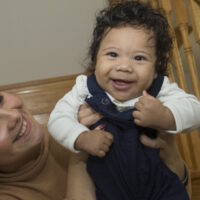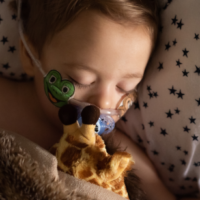Each year, respiratory syncytial virus hospitalizes 58,000 to 80,000 children under age 5 in the U.S. The Food and Drug Administration recently approved an antibody injection for babies to protect them during the RSV season. There isn’t evidence the shots have killed any babies, contrary to social media claims.
Issues: RSV
Instagram Post Misleads About Pfizer’s RSV Maternal Vaccine
Q&A on RSV Maternal Vaccine and Antibody Candidates to Protect Infants
Nearly all children get sick from respiratory syncytial virus, or RSV, by the age of 2, and last year, there was a notable surge in RSV-associated hospitalizations. But the Food and Drug Administration is now considering approval of a vaccine and a monoclonal antibody aimed at protecting infants from this common virus.
Q&A on RSV Vaccine Candidates for Older Adults
RSV Surge in Children Likely Caused by ‘Immunity Gap,’ Not COVID-19 Vaccine
Hospitals across the country are seeing a spike of respiratory syncytial virus infections among children. Experts say the spike is most likely caused by an immunity gap created by the lack of exposure to the virus over the past couple of years. There’s no evidence the pediatric COVID-19 vaccine is the cause, as viral posts falsely claim.




